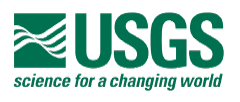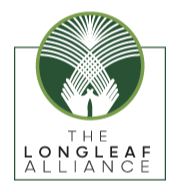Landscape Partnership Resources Library
Virginia 646: Shallow Water Development and Management
This practice is supplemented in the creation of a shallow water area for waterfowl management.
Virginia 645: Upland Wildlife Habitat Management
This practice consists of the management of food, cover, and shelter for wildlife which can be utilized for waterfowl nesting habitat.
Virginia 644: Wetland Wildlife Habitat Management
This practice is supplemented with other wetland standards to provide financial assistance in the management of a wetland for wildlife habitat.
Virginia 587: Structure for Water Control
This standard allows for the installation of a water control structure to provide the manipulation of water levels. The ability to control water levels in a shallow water waterfowl impoundment can allow for proper moist soil management techniques.
Virginia 378: Pond
This standard allows for an area to impound water through excavation or an earthen embankment. For waterfowl, a pond standard consisting of shallow excavation and a berm of no more than 3 FT is suggested.
Virginia 356: Dike
This standard allows for the construction of an earthen berm to assist in controlling water levels for waterfowl management.
Virginia 338: Prescribed Burning
This practice is utilized as another method to control unwanted or invasive species, as well as promote early successional plant growth. Early successional moist soil plants are a vital dietary source for waterfowl and other wildlife species.
Virginia 327: Conservation Cover
This standard is utilized for establishing vegetative cover to enhance wildlife habitat.
Virginia 315: Herbaceous Weed Treatment
This standard allows for the removal or control of herbaceous weeds including invasive, noxious, and prohibited plants. This practice is applicable for areas that have excessive Phragmites australis growth allowing for removal and management of these areas to let native plants to reestablish.
Virginia 314: Brush Management
This standard allows for the removal and management of woody plants including invasive and noxious plants. Using this standard will allow landowners with existing degraded wetlands or waterfowl shallow water areas to clean up the area and return it to early successional vegetation.
American Black Duck Fact Sheet for Delaware Residents
The current fact sheet and applicable practices for the American Black Duck NRCS Working Lands for Wildlife Program in Delaware.
American Black Duck Fact Sheet for Eastern Shore Virginia Residents
The current fact sheet and applicable practices for the Working Lands for Wildlife Black Duck Program in Virginia.
Maryland Shallow Water Area Fact Sheet
The state of Maryland NRCS fact sheet for shallow water areas, a common practice used in creating or restoring habitat for waterfowl use
Managing Longleaf Pine Forests for Our Future
Longleaf Climate Smart Guide (2024) by TNC, Clemson, and The Longleaf Alliance, 17 pages
ANCHOR Fact Sheet (Español)
ANCHOR Fact Sheet Español. ANCHOR es un nuevo enfoque de conservación que construye redes de área para conectar el hábitat y optimizar la resiliencia. El enfoque orienta las inversiones en ubicaciones estratégicas de “anclaje” para conectar las poblaciones de vida silvestre, mejorar la resiliencia del paisaje y fortalecer las economías rurales.
ANCHOR Fact Sheet
ANCHOR is a new conservation approach that builds Areawide Networks to Connect Habitat and Optimize Resiliency. The approach guides investments in strategic “anchor” locations to connect wildlife populations, enhance landscape resiliency, and strengthen rural economies.
Link to 2024 Paper on Bobwhite Response to Pine Savanna Management
A few bobwhite related papers that have been published in the past few months. July 2024
SEFM Data and Methodology Codebook
A thorough review of the data and the methodology used to create the data used in the SE Firemap. Last Updated 5/22/2024
Eastern Hellbender Structural Habitat Augmentation Guidance
This is a technical document to provide guidance on the installation of structural habitat for adult and juvenile Eastern Hellbenders. The document details spacing, placement, and specifications for in-stream nest and cover rocks.


























